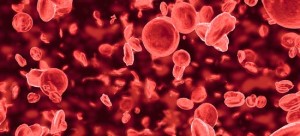
of the body is under attack and to what degree. These disorders are also thought to be the root cause of many other diseases, such as Alzheimer’s disease, diabetes, cancer, heart disease and strokes, as well as a range of other conditions.
An auto-immune disorder occurs when a person’s immune system mistakenly attacks their own body tissues. In other words, the immune system mistakes some part of the body as an infectious agent (such as a virus or bacteria) and attacks its own cells.
Auto-immune disorders are broadly put into two categories: ‘organ-specific’, which means just one organ is affected; and ‘non organ-specific’ disorders, which can affect multiple organs or systems.
These disorders can affect nearly every organ and system of the body. Here are some auto-immune disorders.
- Diabetes (Type I) – affects the pancreas. Symptoms include thirst, frequent urination, weight loss and an increased risk of infection.
- Graves’ disease – affects the thyroid gland. Symptoms include weight loss, elevated heart rate, anxiety and diarrhoea.
- Inflammatory bowel disease – affects the bowel and includes ulcerative colitis and, possibly, Crohn’s disease. Symptoms include diarrhoea and abdominal pain.
- Lupus – affects connective tissue and can strike any organ system of the body. Symptoms include joint inflammation, fever, weight loss and a characteristic facial rash.
- Multiple sclerosis – affects the nervous system. Symptoms can include numbness, paralysis and vision impairment, depending on which part of the nervous system is affected.
- Psoriasis – affects the skin. Features include the development of thick, reddened, scaly patches of skin.
- Rheumatoid arthritis – affects the joints. Symptoms include swollen and deformed joints.
- Scleroderma – affects skin and joints. Symptoms include thickening of the skin, skin ulcers and stiff joints.
What happens?
Normally the immune system’s white blood cells help protect the body from harmful substances, called antigens. Examples of antigens include bacteria, viruses, toxins, cancer cells, and blood or tissue from another person or species. The immune system produces antibodies that destroy these harmful substances.
In patients with an auto-immune disorder, the immune system can’t tell the difference between healthy body tissue and antigens. The result is an immune response that destroys normal body tissue.
Risk factors
According to the Better Health Channel, the exact causes of auto-immune disorders are not known. The risk factors seem to include genetics, environmental factors, gender (women are more susceptible than men), infection and major hormonal changes – some disorders seem to be affected by major hormonal changes, such as pregnancy, childbirth and menopause.
Diagnosis
It can be difficult to diagnose an auto-immune disorder, especially in the earlier stages and if multiple organs or systems are involved, but a diagnosis may include a physical examination, medical history, blood tests, a biopsy or X-rays.
Treatment
Auto-immune disorders in general can not be cured, but the symptoms can be lessened. Traditional treatments include anti-inflammatory drugs, Corticosteroids (again to reduce inflammation), pain-killing medications, and Immunosuppressant drugs (to inhibit the activity of the immune system), as well as physical therapy to encourage mobility.
Alternative treatments include changing to a more alkaline-based diet. Western diets are high in acid-forming foods, resulting in poor health results for most people.
Good alkaline foods include green leafy vegetables, such as spinach, as well as cucumbers, broccoli, asparagus, cabbage, onions, radishes, peas, leeks, turnips, carrots, chives, green beans, beetroot, celery, avocados and tomatoes. Also in this category are almonds and sunflower seeds, as well as sprouts, grains (such as millet and quinoa), miso soup and green tea.
If you suspect you are suffering from an auto-immune disorder, visit your GP or local AMS and get checked out.
Comments are closed.